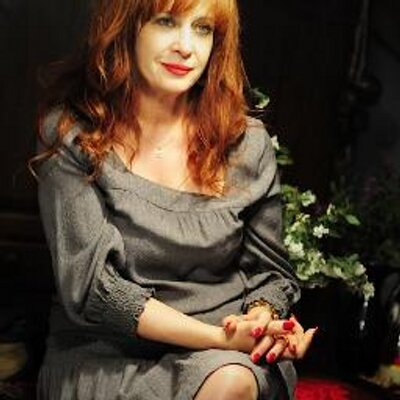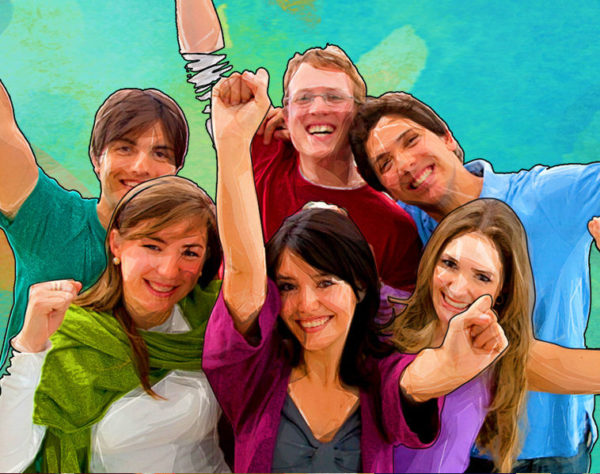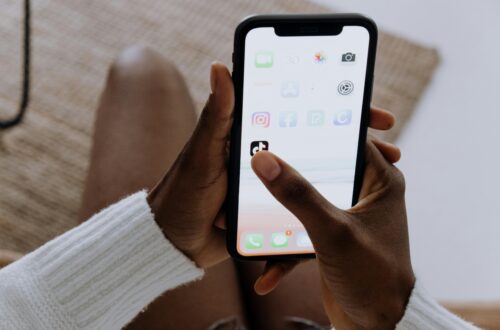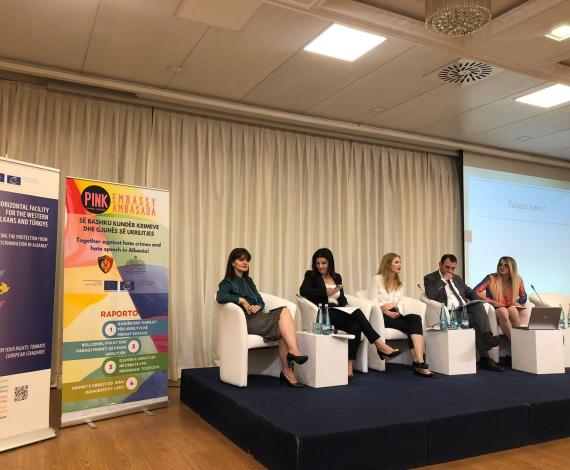
In 1993 during a time of great political and social turmoil in Albania, Sevim Arbana founded the NGO “Useful to Albanian Women” (UAW) and was also a founder of the peace movement “Women Bridge for Peace and Understanding” in the Balkans. Under her leadership and guidance, countless projects were initiated and completed that influenced Albanian society from ground level up and have changed the lives of thousands for the better. Some of her projects include a rehabilitation centre for street children, a campaign against human trafficking, and providing support, assistance, and guidance for abused, poor, and homeless women, children, and the elderly.

She comes from a family with a history of activism and standing up for what they believe in. In 1939 her father joined the Liberation Army which fought against Nazi Fascists, then joining the anti-communism Legality Party in 1943. He suffered greatly as a result of his beliefs and was captured and imprisoned as an “enemy of the state” for ten years in Enver Hoxha’s Albania. As Sevim grew older, the persecution that both she and her family suffered at the hands of the government resulted in economic and social hardship, and even difficulties in her wanting to pursue her education at the School of Arts in Tirana. She lives by the motto “another world is possible” and when you look at her history, and the things she has since accomplished, you can see the way in which this mantra has fuelled her work.

After visiting the words first women’s club in London, she was inspired and decided to set up one in Albania. UAW is located just off Ruga Kavajes and it is there that I went to meet Sevim. The centre consists of a delightful café with vast leafy trees that offer shade from the hot midday sun, as well as offices, and a small apartment at the top that is used to house guests and partners of the organisation. A couple of friendly dogs wander around and a curious looking cat basks in the sun.
Sevim is beautiful- long red hair, piercing blue/green eyes, and dressed in a wonderfully colourful and eclectic style. She is instantly warm and friendly but also gives off a vibe that is unmistakeably passionate and forceful- one that is not to be reckoned with. Firstly, she shows me around the café, pointing out interesting objects such as a table that is collaged with images of little recognised, powerful and strong women from Albanian history. Ascending the spiral staircase, we enter the office space which is full of art, photographs, and interesting objects. Climbing again to the top floor, we enter a small apartment. With large windows opening up onto a terrace, Albanian lace hanging from the walls, and traditional furniture and decorations adorning each room, it is a peaceful and happy space full of sunlight and warmth. There I was introduced to Shpresa, a volunteer with a big smile and a warm face. We sat down to eat a delicious meal that Shpresa had prepared- burek with leeks and a cold pumpkin soup- and then the conversation turned to Sevim’s life work.

She starts to tell me about the Useful to Albanian Women centre. It came from a place of euphoria, idealism, and desire to change the harmful nuances of Albanian society that do not recognise or support the struggles that women face. She wanted to reinforce the importance of women being educated, having jobs, and being able to support themselves and their children. Helping women that have been victims of domestic violence, sexual abuse, abandonment by their partners, and economic hardship- she works to educate and empower them to help them create their own sustainable future. She speaks about the abnormally high levels of domestic violence in the country where as much as 2 out of 3 women will suffer domestic violence in their lifetime and many cases go unreported for fear of shame, being judged, or even disowned by other family members. She also speaks about women that have come to her for help, who live on as little as $20 a month with children to support. This is not an isolated case- she reels of multiple examples of people living on $2 a day or less, all of them single women with children to feed and clothe. I asked her what help is there for these people? The answer was “not much”. Whilst there are laws and governmental support structures in place, the level of bureaucracy involved puts many women off, and there are a lot that don’t even know they can access support. Furthermore, she highlights significant issues within the police force when it comes to reporting domestic violence. Often the reports are not taken seriously, the women are further harassed, or the estranged partner makes a phone call or gives some money to the right person, and the whole thing goes away. Many of these women come from rural areas, have limited education, and are unable to mobilise the resources needed to work towards improving their own situation. Desperate and disheartened, many end up on Sevim’s doorstep.

Over the years, Sevim and the projects that she oversees have helped thousands and thousands of Albanians, Roma, and marginalised individuals re-join society. As well as the rehabilitation centre for street children providing professional training and economic help, she spearheaded a campaign against the prevalence of human trafficking in Albania. She was also responsible for building a greenhouse which grew flowers that were then donated and given as gifts, helping to spread a message of peace at a time of war. During the Kosovo war, she helped over 3800 Kosovo Albanian with food, shelter, and humanitarian aid, as well as helping those that were displaced and abused by thee ravages of war. She also works within the Roma community, and she is particularly concerned with the issues of teenage pregnancy (girls as young as 10) and a lack of education or opportunity to gain employment.

Sevim and her organisation have also contributed to helping the victims of blood feuds, visiting and speaking to those who are both involved and affected by such barbaric practices. Even in 2018, the issue of blood feuds is still one that plagues the more rural parts of the country. In Shkodra alone, there is an estimated 68 families that are unable to leave their homes due to the tit-for-tat “rules” that have their foundation in The Kanun which dates back to the 15th Century.
There is no doubt that Sevim has achieved levels of greatness in her work, and whilst she was nominated for a Nobel Peace Price in 2005, received an award for Human Rights in France, and has been president of various NGOs, she still receives little assistance within Albania. She has also made many enemies through her pursuit of good such as being arrested by Serbian Militia in 1991 for speaking at a forum in Kosovo, being booed and jeered, and not receiving a penny of funding, or an ounce of support from the powers that be. She tells me that she used to work closely with the Mayor of Tirana, Erion Veliaj when he was involved with the Mjaft movement, but since his heady ascension into politics, he has not been interested in helping Sevim’s cause in any way.

It seems that on paper there are policies and legal frameworks to help women in Albania- to offer protection, assistance and support, but the reality is that it never really reaches the people that need it. Talking about EU Ascension, Sevim believes it is impossible in a country where many places don’t have electric or running water, where many citizens do not have access to education, and where such a large percentage live on $2 a day. She believes that the Albanian government needs to put more effort into attending to the wellbeing of everyone in the country, rather than ticking a few superficial boxes to enter a Union that it cannot ever really compete in.
One thing that really struck me during the course of our conversation was what if Sevim and her organisations did not exist? How many women and children would have continued to suffer or even died because there was no-one else to help them? Sevim funds everything through donations, mainly from foreign sources and she talks about the exorbitant taxes she has to pay just to continue her work and run her various centres throughout the country.

She is an example of a truly great and inspiring Albanian, as well as a woman and the work she has undertaken and carried out throughout Albania should be revered to the highest level. She is a great voice for those that are violated, poor, have been abused physically, mentally, and sexually, and for those that want to fight for change. Whilst she believes that progress has and is being made, it is not coming quick enough for those that she cannot reach. She speaks hopefully of the new generation of passionate activists that are working hard to create a better society, but without the support and help of the government and the funding that they can provide, it is a long and arduous journey.
Sevim is a truly inspirational woman and I found it hard to condense her life’s work and achievements into just one article. The good things she has done and the rights she fights for, address some of the vilest and destructive aspects of Albanian society. I hope that people like her, and the ones that follow her will continue their good work- helping, educating, campaigning, and creating awareness around the atrocities that are committed towards some of societies most vulnerable.
Follow The Balkanista!





